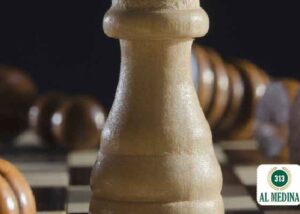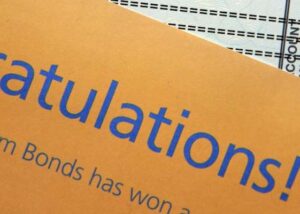Quran
Hadith
Islamic Text
No, not all dice games are Haram. The Hadith prohibited something called al-Nard, which is a particular dice game and does not encompass all dice games.
عَنْ سُلَيْمَانَ بْنِ بُرَيْدَةَ، عَنْ أَبِيهِ، أَنَّ النَّبِيَّ صَلَّى اللهُ عَلَيْهِ وَسَلَّمَ قَالَ: مَنْ لَعِبَ بِالنَّرْدَشِيرِ، فَكَأَنَّمَا صَبَغَ يَدَهُ فِي لَحْمِ خِنْزِيرٍ وَدَمِهِ
(Sayidina) Buraidah (May Allah Most High be pleased with him) narrated that the Prophet ﷺ said, ‘If someone plays al-Nardashir, then it is as if he has placed his hands in the flesh of swine and its blood.’ (Sahih Muslim, 2260 – 10).
عَنْ أَبِي مُوسَى الْأَشْعَرِيِّ، أَنَّ رَسُولَ اللَّهِ صَلَّى اللهُ عَلَيْهِ وَسَلَّمَ، قَالَ: مَنْ لَعِبَ بِالنَّرْدِ فَقَدْ عَصَى اللَّهَ وَرَسُولَهُ
(Sayidina) Abu Musa al-Ash‘ari (May Allah Most High be pleased with him) narrated that the Prophet ﷺ said, ‘He who plays al-Nard has indeed disobeyed Allah (Most High) and His Messenger ﷺ.’ (Abi Dawood 4938, Hasan Lighayrihi).
Some people consider all dice games to be prohibited due to the Hadith narrations above. This is due to their understanding of the word al-Nardashir or al-Nard. They believe this word refers to dice. Therefore, they conclude that dice are prohibited.
This is not the sound understanding according to the Hanafi Madhab. Rather these words are not referring to dice, they denote a particular game that was prevalent amongst the Persians.
Thus there is no prohibition upon all dice games. Rather the game that was referred to as al-Nardashir or al-Nard is prohibited. What was this game? It seems this game was either backgammon or something similar to it.
Many Hadith commentators explained al-Nardashir or al-Nard as referring to a particular game and not dice. Amongst them the renowned Hanafi scholar Imam Ali al-Qari.
وَقَالَ بَعْضُ الشُّرَّاحِ مِنْ عُلَمَائِنَا: هُوَ النَّرْدُ الَّذِي يُلْعَبُ بِهِ، وَهُوَ مِنْ مَوْضُوعَاتِ شَابُوَرَ بْنِ أَرْدِشِيرَ بْنِ تَابَكَ، أَبُوهُ أَرْدِشِيرُ، أَوَّلُ مُلُوكِ السَّاسَانِيَّةِ شَبَّهَ رُقْعَتَهُ بِوَجْهِ الْأَرْضِ، وَالتَّقْسِيمَ الرُّبَاعِيَّ بِالْفُصُولِ الْأَرْبَعَةِ، وَالرُّقُومُ الْمَجْعُولَةُ ثَلَاثِينَ بِثَلَاثِينَ يَوْمًا، وَالسَّوَادُ وَالْبَيَاضُ بِاللَّيْلِ وَالنَّهَارِ، وَالْبُيُوتُ الِاثْنَيْ عَشْرِيَّةِ بِالشُّهُورِ، وَالْكِعَابُ بِالْأَقْضِيَةِ السَّمَاوِيَّةِ، وَاللَّعِبُ بِهَا بِالْكَسْبِ. (مرقاة المفاتيح شرح مشكاة المصابيح)
Some of the commentators amongst our scholars said, it is the al-Nard that is played. It was produced by Shaaboor bin Ardisheer bin Taabak. His father was Ardisheer, the first king of the Sasanians. He symbolised the Earth with the board. The four sections represent the four seasons. The markings are thirty due to thirty days. The black and the white symbolises night and day. The twelve homes symbolise the months. The dice represent heavenly decrees. Playing with them represents acquisition. (Imam Ali bin Muhammad al-Qari, Mirqaat al-Mafateeh).
شبه رقعته بوجه الأرض، والتقسيم الرباعي بالفصول الأربعة، والرقوم المجعولة ثلاثين بثلاثين يوما، والسواد والبياض بالليل والنهار. (الميسر في شرح مصابيح السنة)
He symbolised the surface of the Earth with the board. The division into four represents the four seasons. The markings are thirty due to thirty days. The black and the white symbolises night and day. (Imam Shihab al-Deen al-Turibishti, al-Maseer).
النردشير, وشبه رقعته بالأرض وقسمها أربعة أقسام تشبيها بالفصول الأربعة. (تحفة الأبرار شرح مصابيح السنة)
Al-Nardashir: He symbolised the Earth with the board. He divided it into four sections representing the four seasons. (Imam Abdullah bin Umar al-Baydawi, Tuhfatu al-Abraar).
شبه رقعته بوجه الأرض والتقسيم الرباعي بالفصول الأربعة والشخوص الثلاثين بثلاثين يوما والسواد والبياض بالليل والنهار. (فيض القدير شرح الجامع الصغير)
He symbolised the surface of the Earth with the board. The division into four represents the four seasons. The markings are thirty due to thirty days. The black and the white symbolizes night and day. (Imam Zayn al-Deen al-Munaawi, Fayd al-Qadeer).
As we see in the Nusoos (texts) above, numerous classical Hadith scholars described al-Nard or al-Nardashir as a game and not merely dice. Therefore, the reference found in Hanafi works should be applied to a particular game and not all dice games.
وَيكرهُ اللّعب بالنرد وَالشطْرَنْج. (تحفة الفقهاء)
And it is disliked to play al-Nadr and chess. (Imam Ala al-Deen al-Samarqandi, Tuhfatu al-Mulook).
(وَ)
كُرِهَ تَحْرِيمًا (اللَّعِبُ بِالنَّرْدِ وَ) كَذَا (الشِّطْرَنْجِ)
(قَوْلُهُ بِالنَّرْدِ) هُوَ اسْمٌ مُعَرَّبٌ وَيُقَالُ لَهُ النَّرْدَشِيرُ بِفَتْحِ الدَّالِ وَكَسْرِ الشِّينِ وَالشَّيِّرُ اسْمُ مَلِكٍ وُضِعَ لَهُ النَّرْدُ. (رد المحتار على الدر المختار)
Imam al-Haskafi: It is Makruh Tahreeman to play al-Nard and likewise chess.
Imam Ibn Abideen: His saying al-Nard, it is an Arabised noun. It is also called al-Nardashir, with a Fathah on the Daal and a Kasrah on the Sheen. Sheer is the name of the king for whom al-Nard was made. (Radd al-Muhtaar ala Durr al-Mukhtaar).
(ويحرم اللعب بالنرد) لقوله عليه السلام: من لعب بالنرد فقد عصى الله ورسوله. (منحة السلوك في شرح تحفة الملوك)
Playing aal-Nard is Haram (prohibited). This is due to his (peace be upon him) saying, ‘He who plays al-Nard has indeed disobeyed Allah (Most High) and His Messenger ﷺ.’ (Imam Badr al-Deen al-Ayni, Minhatu al-Sulook fi Sharh Tuhfatu al-Mulook).
And Allah Most High Knows Best.
-Answered by Shaykh Noorud-deen Rashid (23.03.2023)
See also:
Is playing Chess Haram?
See also video:






